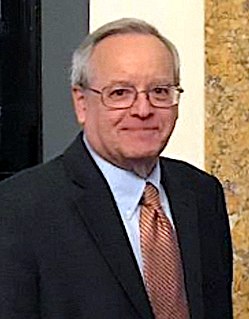A Quote by Ted Nordhaus
In the months after George W. Bush's reelection, a lot of liberals and environmentalists were ready to take a hard look at their political agenda, the Democratic Party, and the interest groups they supported.
Related Quotes
I think, the most progress I have agenda, the progressive platform in the history of the Democratic Party. So we have got to continue bringing people in, fighting for an agenda that works for working families and having the courage to take on the big money people who today control our economic and political life.
It used to be that the working class, broadly speaking - Americans who worked with their hands, who worked in factories, who were not in management - were an interest group, a political interest group. And their main spokespersons were the Democrats. Their platform was the Democratic Party. And that began to change after the 1960s. Not for black or other working class Americans, but for white working class.
When George W.Bush attacked Afghanistan, it was widely hailed, and the failure of our war there wasn't understood. Within a few months of attacking Afghanistan, Bush clearly moved on to get ready for Iraq, long before Osama bin Laden or Al Qaeda were dispensed with. There was never any serious debate in the press about whether even the notion that every Taliban was our enemy was valid. A lot of assumptions about that war were never challenged.
As John Kerry sails toward the Democratic nomination, new questions are emerging about President Bush's service in the National Guard, like where he was for six months in 1972 and why he refused to take a routine physical. President Bush has vowed to get to the bottom of this right after Election Day.
I like something about George W. Bush. A lot. After spending more than a decade having almost physiological-chemical reactions anytime I saw him, getting the heebie-jeebies whenever he spoke - after being sure from the start that he was a Gremlin on the wing of America - I really like the paintings of George W. Bush.
Senator Obama is a gifted and eloquent young man who can do great things for our country in the years ahead. But my friends, eloquence is no substitute for a record - not in these tough times for America. In the Senate he has not reached across party lines to get anything significant done, nor has he been willing to take on powerful interest groups in the Democratic Party.
After the election of George McGovern in 1972 as a peace candidate - I should say his election to the nomination of the Democratic Party - the party changed the rules to steeply tilt that playing field, creating superdelegates and Super Tuesdays that make it very hard for a grassroots campaign to prevail.
There's been a lot of talk about how bad the reporting was, particularly with the George W. Bush Administration after 9/11. The general assumption, which I think is a valid one, is that a lot of the major media were on their heels a little bit and prone to share the grief of the nation and to give Bush all the support it could.


































